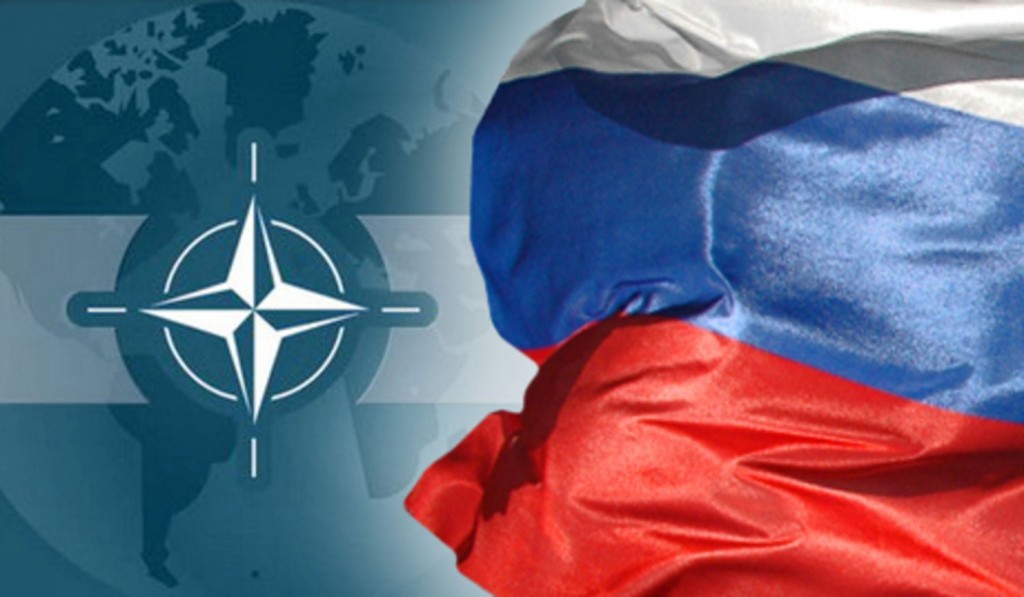 Brandon Turbeville
Brandon TurbevilleActivist Post
February 15, 2016
As the Syrian government is swiftly gaining control over the terrorists who have run rampant all across the country for the past five years, NATO and the GCC are kicking their provocations into high gear. Unfortunately, if NATO is prepared to go all the way in its goal to destroy the Syrian government, the rest of the world may find itself locked in the midst of a third world war.
Such a possibility is exactly what Russian Prime Minister Dmitry Medvedev warned about in an interview with German newspaper, Handelsblatt. When asked about the recent announcement by Saudi Arabia that the feudal monarch is considering sending ground troops to Syria, Medvedev responded that “the Americans and our Arab partners must consider whether or not they want a permanent war.”
Medvedev stated that such an operation “draws everyone taking part in it into a war.”
Yet that has not stopped the Saudis or the Turks from preparations for an invasion of Syria or from becoming increasingly aggressive in the meantime.
For one, Saudi Arabia has sent jets to Turkey’s Incirlik Airbase, where NATO planes are already stationed. Mevlut Cavusoglu, Turkish Foreign Minister, stated on February 13 that the jets would be deployed at Incirlik and that Saudi Arabia and Turkey would be engaging in “ground operations” in Syria under the guise of fighting ISIS. As Hurriyet Daily News reported,
“This is not an issue for Turkey or Saudi Arabia alone, we have been saying that the coalition should be doing this,” Çavuşoğlu said when asked about reports of a possible ground operation against ISIL by Turkey and Saudi Arabia in Syria.
“But there is no solid decision on this yet, no concrete strategy. This is not a new idea, but as of today there is no final decision regarding a ground operation,” he added.
Riyadh and Ankara are both opposed to Syrian President Bashar al-Assad, whose foreign minister last week warned that any ground intervention would “amount to aggression that must be resisted.”
Al-Assiri said the decision to deploy an unspecified number of jets to Turkey followed a meeting in Brussels of U.S.-led anti-ISIL coalition members, who decided step up their fight against jihadists in Syria and Iraq. He stressed that Saudi Arabia made its decision in coordination with the coalition and a ground operation was being planned.
“There is a consensus among coalition forces on the need for ground operations and the Kingdom is committed to that,” al-Assiri said.
“Military experts will meet in the coming days to finalize the details, the task force and the role to be played by each country,” he added.
Saudi Foreign Minister Adel al-Jubeir also told reporters on Feb. 14 that his country was ready to send special forces to Syria to take part in ground operations against ISIL, without giving further details.
In addition to the obvious preparation for an invasion of Syria, Turkey has repeatedly shelled Syrian forces, Kurdish fighters, and civilians across the border in the last week. For instance, Turkey has shelled the Kurdish held airbase of Minnigh in Aleppo as well as Kurdish-controlled positions all across Northern Syria.
The Independent reported that
Shelling was reported at Menagh air base, a former Syrian Air Force facility that Kurds seized from Islamist rebels just days ago, and at three other positions between the airport and Turkish border. The air base has been a key target for several parties in the Syrian civil war since 2012, being besieged by rebels for almost a year until it was seized by a coalition including an early form of Isis and the al-Qaeda-linked Jabhat al-Nusra in August 2013 [and] it remained in rebel hands until Thursday, when Kurdish PYD fighters capitalised on the diversion caused by Bashar al-Assad’s forces and Russian air strikes attacking rebel areas to the south to seize Menagh.
Predictably, Turkish Prime Minister Davutoglu claims the shelling was in accordance with "rules of engagement."
Turkey has also shelled SDF positions in the city of Azaz, a city that represents the Western border of the main ISIS supply route known as the “Jarablus corridor,” illustrating the growing complexity and multi-layered nature of the crisis in Syria since the SDF is partially supported by the United States.
Turkey has repeatedly warned Kurdish forces against attempting to seize the Jarablus corridor, fearing an attempt at the creation of a Kurdish state on its southern border and the eventual inflammation of tensions with Turkish Kurds as well as a desire to keep a vital artery open to ISIS so that the terrorist organization may continue to enter and be resupplied in Syria.
Russia’s warning, however, remains looming in the background. Clearly, it is a warning that must be taken seriously.
Brandon Turbeville – article archive here – is the author of seven books, Codex Alimentarius — The End of Health Freedom, 7 Real Conspiracies, Five Sense Solutions and Dispatches From a Dissident, volume 1 andvolume 2, The Road to Damascus: The Anglo-American Assault on Syria, and The Difference it Makes: 36 Reasons Why Hillary Clinton Should Never Be President. Turbeville has published over 650 articles dealing on a wide variety of subjects including health, economics, government corruption, and civil liberties. Brandon Turbeville’s radio show Truth on The Tracks can be found every Monday night 9 pm EST atUCYTV. His website is BrandonTurbeville.com He is available for radio and TV interviews. Please contact activistpost (at) gmail.com.
No comments:
Post a Comment
Note: Only a member of this blog may post a comment.